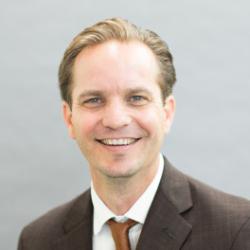The following article is the Acton Institute’s English translation from the Italian “Il Papa e la condanna dei soldi. Parla Padre Robert Sirico” written by Matteo Matzuzzi and published in the Rome-based daily Il Foglio on November 8. Readers should note that there is no official English translation of Pope Francis’ November 5 address to leaders of lay movements gathering inside the Vatican. The original speech in Italian, Spanish and Portuguese can be found here.
“It certainly would be absurd to criminalize money if one’s sincere concern is the well-being of the poor. Lamenting the struggle of the poor is not the end goal of moral compassion. Ameliorating their concern is. And at least at the material level, this requires the production of wealth,” said Rev. Robert A. Sirico, president of the American think tank, the Acton Institute for the Study of Religion and Liberty, which aims to promote a free, virtuous and humane society.
Rev. Sirico shared his views with the Italian daily ll Foglio following the Pope’s long speech delivered last Saturday before an audience of charismatic lay movement leaders who had come to the Vatican for their third world gathering. During the audience, Pope Francis relaunched his accusation that money is “an idol that rules instead of serves, which tyrannizes and terrorizes humanity.”
It is money, continued the Holy Father, “that rules with the whip of fear, inequality, economic, social, cultural and military violence. [It] generates ever more violence in a seemingly unending downward spiral. There is a basic [form of] terrorism stemming from the global control of money on earth and which threatens all of humanity.”
And “all tyranny is a terroristic,” the pope added.
“When this terror, sown in the peripheries by way of massacres, looting, oppression and injustice, erupts in [urban] centers with different forms of hateful and cowardly violence, citizens are tempted by the false security of physical or social walls while still clinging to a few rights.”
“Of course”, observes Sirico, “wealth can be abused, both in its production and in its use. Of that there is no doubt. But so can many other gifts entrusted to human being.”
“I think of sexuality in this regard, yet when directed toward God, sexuality becomes a Sacrament. So too wealth can have a moral origin and a moral finality. I would trust that the Holy Father doesn’t disagree with any of this, for to criminalize such a process would abandon the economically vulnerable.”
Bergoglio’s attack on the capitalist system itself was harsh. Yet, in terms of what is meant by the “capitalist system”, Fr. Sirico said, ”I would ask for clarification.”
“I find [clarity] in the encyclical Centesimus Annus, specifically number 42, where St. John Paul says that if by capitalism [we mean] ‘the free economy’ rooted in a moral and religious foundation and situated in a juridical context, then this is commendable.”
The problem, if anything, is to reconcile the idea of a free economy with the Church’s social doctrine.
The president of the Acton Institute thinks that this is a difficult undertaking because “there is a general confusion as to what it means, especially if one is only familiar, not with free economic actors, but with business people who exclude people from the circle of economic exchange and place money, rather than human being, at the center of their concern.”
“This is ‘the economy that kills’, not competitive markets,” said Sirico.
“When people do not understand economics and markets, it is easy to assume that successful economic actors become wealthy at the expense of others. This is known in economic as the ‘zero sum fallacy.’”
The Church’s social doctrine, Sirico observes, does not teach us this. Nonetheless, in his opinion, the sad fact is that sometimes “people love [the poor] so much they advocate policies that will produce more poverty.”
The risk is to look at the problem in the wrong way, he said, from an erroneous perspective, as one might conclude, for example, that fundamentalism is a consequence of the idolatry of money.
“If you begin with the definition that all global markets by their very nature ‘exclude people’, then of course, this is unethical and to be rightly condemned, as is any form of the worship of money, which is what the idolatry of money means,” he said.
“There is, however, two other forms of what might rightly be called economic fundamentalism: This is, on the one hand, when one demonizes [the rich] simply because they are economically successful, or when one canonizes the poor simply because they are not economically successful. The former is known as the ‘Prosperity Gospel’ and the latter is known as ‘Liberation Theology.’”
“I prefer,” admits Sirico, “the insight of St. Teresa of Calcutta, who said: ‘We do not take it upon ourselves to have the right to condemn the rich. We do not believe in class struggle or class warfare…We believe rather in class encounter where the rich save the poor and the poor save the rich.’”

